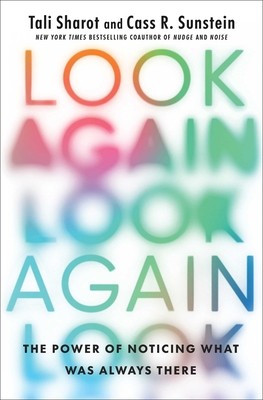
- We will send in 10–14 business days.
- Author: Tali Sharot
- Publisher: Atria/One Signal Publishers
- ISBN-10: 1668008211
- ISBN-13: 9781668008218
- Format: 13.7 x 21.1 x 2 cm, minkšti viršeliai
- Language: English
- SAVE -10% with code: EXTRA
Reviews
Description
This "smart and fun read, and a valuable way to revitalize your life" (Walter Isaacson) deftly explains how disrupting our well-worn routines, both good and bad, can rejuvenate and reset our brains for the better. Have you ever noticed that what is exciting on Monday tends to become boring on Friday? Even passionate relationships, stimulating jobs, and breathtaking works of art lose their sparkle after a while. As easy as it is to stop noticing what is most wonderful in our lives, it's also possible to stop noticing what is terrible. People get used to dirty air. They become unconcerned by their own misconduct, blind to inequality, and are more liable to believe misinformation than ever before. Now, neuroscience professor Tali Sharot and Harvard law professor (and presidential advisor) Cass R. Sunstein investigate why we stop noticing both the great and not-so-great things around us and how to "dishabituate" at the office, in the bedroom, at the store, on social media, and in the voting booth. This groundbreaking and "sensational guide to a more psychological rich life" (Angela Duckworth, New York Times bestselling author), based on decades of research, illuminates how we can reignite the sparks of joy, innovate, and recognize where improvements urgently need to be made. The key to this disruption--to seeing, feeling, and noticing again--is change. By temporarily changing your environment, changing the rules, changing the people you interact with--or even just stepping back and imagining change--you regain sensitivity, allowing you to identify more clearly the bad and more deeply appreciate the good.- Author: Tali Sharot
- Publisher: Atria/One Signal Publishers
- ISBN-10: 1668008211
- ISBN-13: 9781668008218
- Format: 13.7 x 21.1 x 2 cm, minkšti viršeliai
- Language: English English


Reviews